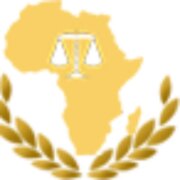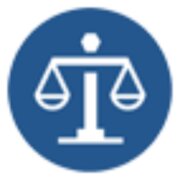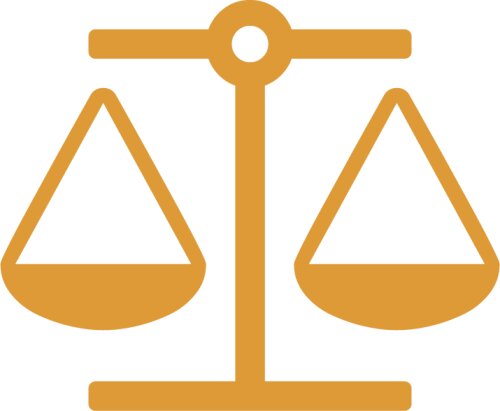Best E-commerce & Internet Law Lawyers in DR Congo
Share your needs with us, get contacted by law firms.
Free. Takes 2 min.
Or refine your search by selecting a city:
List of the best lawyers in DR Congo
About E-commerce & Internet Law in DR Congo
E-commerce and internet law in the Democratic Republic of Congo (DRC) is an evolving field, shaped by both international trends and local regulations. The burgeoning digital economy in the DRC is impacted by global digitalization with increasing attention being given to online trade practices, the rights of consumers and businesses, as well as information security. The Congolese government has been working towards establishing a comprehensive regulatory framework to govern electronic commerce and related digital activities, ensuring stakeholders engage in fair and safe online trade.
Why You May Need a Lawyer
Individuals and businesses may require legal assistance in e-commerce and internet law in various situations. For instance, entrepreneurs setting up an online business may need assistance with compliance and understanding local regulations. Companies dealing with data breaches or intellectual property issues need legal counsel to manage the situation effectively. Consumers facing online fraud or unfair practices may also seek legal advice to assert their rights and seek remedies. Additionally, contractual disputes, issues with cross-border trade, and tax concerns are other scenarios that necessitate legal expertise.
Local Laws Overview
The legal landscape for e-commerce in the DRC covers various aspects, including digital contracts, consumer protection, electronic transactions, and data protection. The DRC has been incrementally aligning its legislation with international best practices. Key areas include:
- Electronic Transactions: The legal validity of digital contracts and signatures is recognized, making online agreements enforceable.
- Consumer Protection: Laws are in place to ensure fair practices in online transactions, safeguarding consumer rights against fraud and exploitation.
- Data Protection: There are legal provisions aimed at protecting personal data from unauthorized use, fostering trust in digital commerce.
- Intellectual Property: Regulations exist to protect digital content and innovations, encouraging creativity and investment in the tech sector.
Frequently Asked Questions
1. Is online shopping regulated in the DRC?
Yes, there are regulations that govern online shopping to protect consumers and ensure fair practices.
2. Are electronic signatures legally valid?
Electronic signatures are recognized as legally valid under Congolese law, provided they meet certain criteria.
3. What are my rights if I experience online fraud?
Victims of online fraud have the right to seek legal remedies, including compensation and punitive measures against perpetrators.
4. How is my personal data protected online?
The DRC has laws in place to protect personal data, requiring consent for data collection and imposing restrictions on data use and sharing.
5. Can I enforce a contract made online?
Contracts made online are enforceable if they meet the legal requirements of a valid contract under Congolese law.
6. Are e-commerce platforms subject to any specific obligations?
E-commerce platforms have legal obligations to protect consumer rights, ensure secure transactions, and comply with taxation regulations.
7. How is intellectual property protected for online content?
Intellectual property laws protect online content, allowing creators to manage and defend their rights against unauthorized use.
8. What happens if my data is breached?
If your data is breached, there are legal avenues to seek redress, and businesses may face penalties for failing to protect data effectively.
9. Are there laws about unsolicited electronic communications?
Yes, there are regulations governing the sending of unsolicited emails and messages, aimed at preventing spam and protecting users’ privacy.
10. How can businesses ensure compliance with e-commerce laws?
Businesses are advised to seek legal counsel, stay informed of legislative changes, and implement robust compliance procedures to align with local laws.
Additional Resources
For further assistance, individuals and businesses can reach out to the following resources:
- Ministry of Posts, Telecommunications, and New Information and Communication Technologies: Offers guidance on policy and regulation for the ICT sector.
- Agency for Regulation of Posts and Telecommunications of Congo (ARPTC): Regulates telecommunications and electronic communications.
- Local Legal Firms: Specialized firms and practitioners in e-commerce and internet law provide tailored legal advice and representation.
Next Steps
If you need legal assistance in e-commerce and internet law, consider the following steps:
- Identify specific legal issues or questions you have regarding your situation.
- Consult with a qualified legal practitioner who specializes in e-commerce and internet law to get a clear understanding of your rights and obligations.
- Stay informed about updates and changes in the legal landscape related to e-commerce in the DRC by following relevant agencies and organizations.
- Consider joining professional networks or associations that focus on digital and e-commerce law for ongoing support and resources.
Lawzana helps you find the best lawyers and law firms in DR Congo through a curated and pre-screened list of qualified legal professionals. Our platform offers rankings and detailed profiles of attorneys and law firms, allowing you to compare based on practice areas, including E-commerce & Internet Law, experience, and client feedback.
Each profile includes a description of the firm's areas of practice, client reviews, team members and partners, year of establishment, spoken languages, office locations, contact information, social media presence, and any published articles or resources. Most firms on our platform speak English and are experienced in both local and international legal matters.
Get a quote from top-rated law firms in DR Congo — quickly, securely, and without unnecessary hassle.
Disclaimer:
The information provided on this page is for general informational purposes only and does not constitute legal advice. While we strive to ensure the accuracy and relevance of the content, legal information may change over time, and interpretations of the law can vary. You should always consult with a qualified legal professional for advice specific to your situation.
We disclaim all liability for actions taken or not taken based on the content of this page. If you believe any information is incorrect or outdated, please contact us, and we will review and update it where appropriate.
Browse e-commerce & internet law law firms by city in DR Congo
Refine your search by selecting a city.












